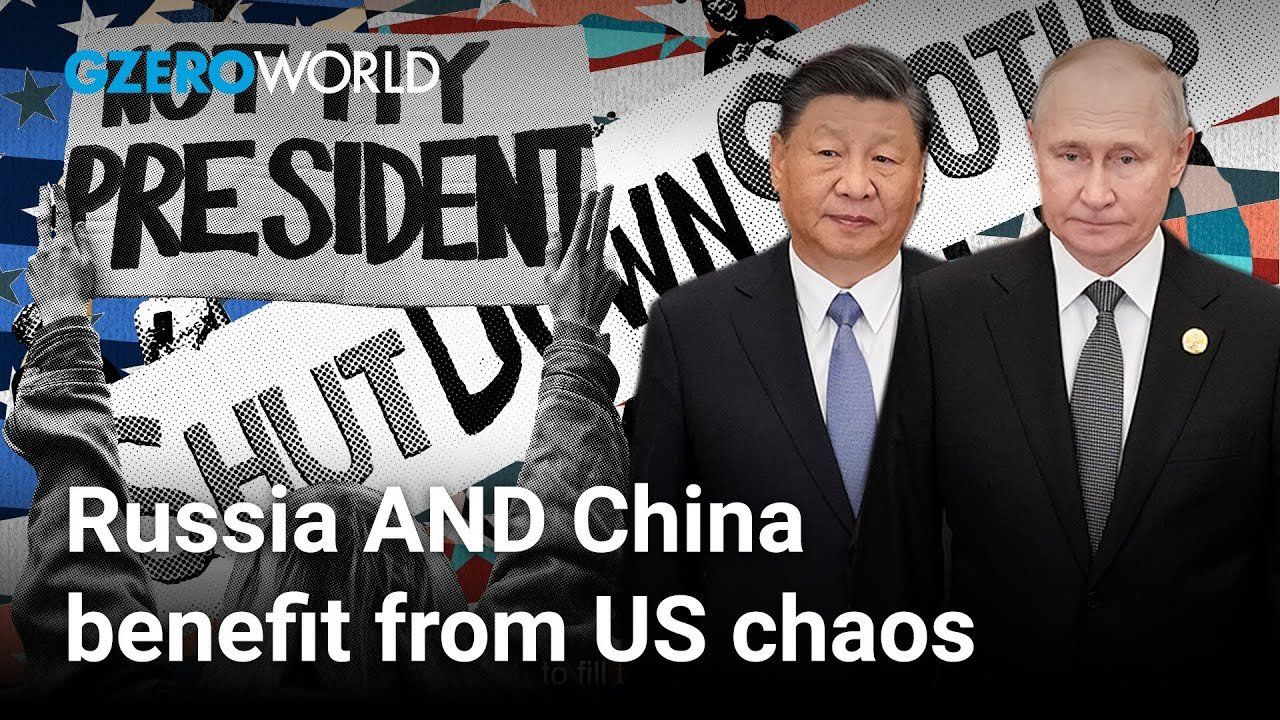
On GZERO World, David Sanger, Pulitzer Prize-winning New York Times journalist and author of "New Cold Wars," argues that while China seeks to become the top global power by 2049, Russia, lacking such aspirations, acts as a disruptor on the international stage. Sanger also notes how both countries have an interest in fueling instability in the U.S., amplifying chaos to distract American focus from their strategic ambitions. He tells Ian Bremmer, "China wants to be the top dog by 2049, the 100th anniversary of the Chinese Revolution and of Mao declaring the state. And they want to be the top dog of something worth being the top dog of. The Russians have no hope for that. So their only source of power is as a disruptor, and that's the friction between these two that may come into play."
Sanger also argues that both Russia AND China have an interest in sowing internal discord in the United States. "They have every incentive, both of them, Russia and China, to be subtle actors in the background of this coming presidential election. And that's one area where if they are not cooperating, it would pay them off considerably to coordinate."
Watch Ian Bremmer's full interview with David Sanger on GZERO World - Are we on the brink of a new cold war?
Catch GZERO World with Ian Bremmer every week on US public television (check local listings) and online.
- Are we on the brink of a new cold war? ›
- The next era of global superpower competition: a conversation with the New York Times' David Sanger ›
- What China and Russia share ›
- Trump: I would encourage Russia to attack 'delinquent' NATO allies ›
- The threat of foreign interference to the US election ›
- Who would Putin vote for? ›
- It’s election interference season — always ›